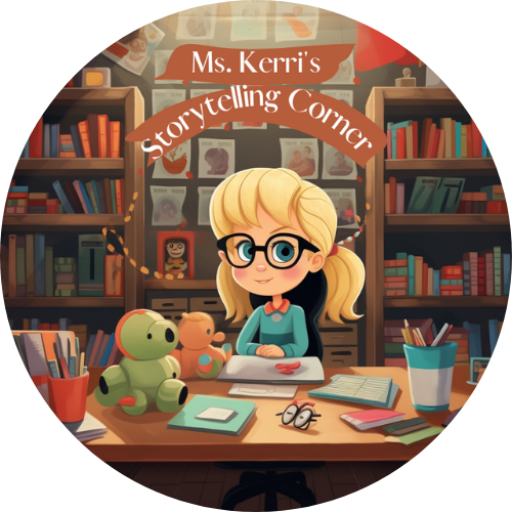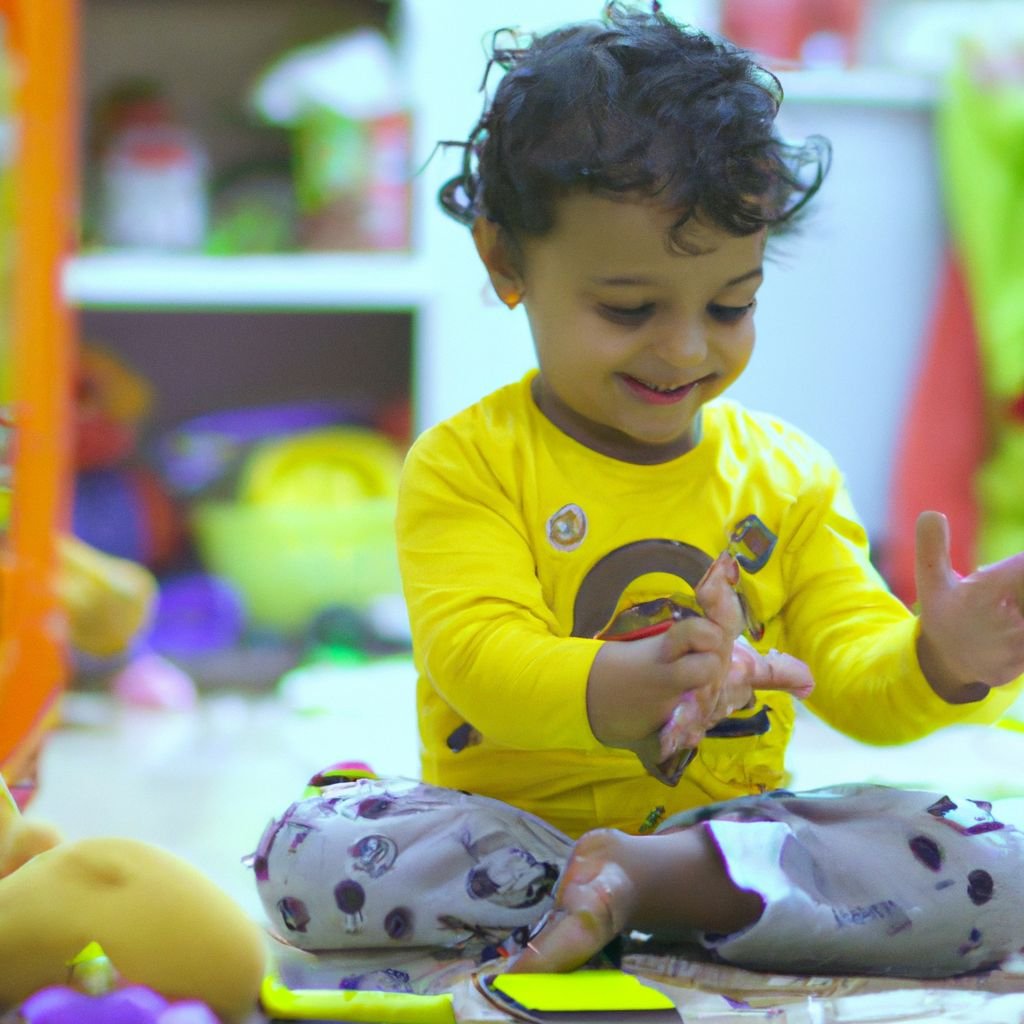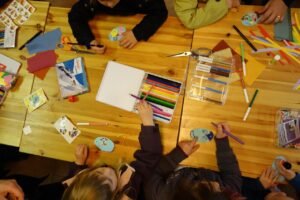Preschoolers are constantly learning and growing, and everyday moments provide valuable opportunities for them to develop meaningful life skills. From recognizing and expressing emotions to problem-solving and critical thinking, these skills lay the foundation for future success. In this article, we will explore five important life skills that preschoolers can learn through everyday moments and how they can benefit from them.
Key Takeaways
- Preschoolers can develop emotional intelligence by recognizing and expressing emotions, showing empathy, and managing their own emotions.
- Building social skills is important for preschoolers, including taking turns, cooperating in a group, and respecting others’ boundaries.
- Cultivating problem-solving abilities in preschoolers involves identifying problems, brainstorming solutions, and adapting to alternative approaches.
- Nurturing creativity and imagination in preschoolers can be done through pretend play, art exploration, and encouraging outside-the-box thinking.
- Developing critical thinking skills in preschoolers includes observing, asking questions, and analyzing information to make connections and evaluate.
Developing Emotional Intelligence

Recognizing and expressing emotions
Preschoolers are at a crucial stage of emotional development, where they are learning to recognize and express their emotions. This skill is essential for their overall well-being and social interactions. By understanding and acknowledging their feelings, children can effectively communicate their needs and establish healthy relationships.
One way to support preschoolers in developing this skill is by providing them with a safe and nurturing environment where they feel comfortable expressing their emotions. Encourage them to talk about how they feel and validate their emotions by actively listening and empathizing with them.
It is important to teach children that all emotions are valid and that it is okay to feel a wide range of emotions. By doing so, we help them build emotional resilience and develop a positive attitude towards their own feelings and the feelings of others.
To further enhance their emotional intelligence, engage preschoolers in activities that promote self-awareness and emotional expression. For example, you can encourage them to create artwork that represents their emotions or engage in role-playing games where they can act out different emotions.
By nurturing their ability to recognize and express emotions, we empower preschoolers to navigate their emotional landscape with confidence and empathy.
 https://direct.me/mskerriscorner
https://direct.me/mskerriscorner
Empathy and understanding others’ feelings
Empathy is the ability to understand and share the feelings of others. It is a crucial life skill that helps preschoolers develop strong relationships and navigate social interactions. By teaching empathy, we are nurturing kindness, compassion, and emotional intelligence in our little ones.
One way to foster empathy in preschoolers is through storytelling. Reading aloud to children exposes them to different emotions and perspectives, allowing them to step into the shoes of the characters and understand their feelings. This helps them develop empathy and learn how to relate to others.
Another effective way to promote empathy is by encouraging children to talk about their own feelings and emotions. By creating a safe and supportive environment, we can teach them to express themselves and validate their emotions. This not only helps them understand their own feelings but also enables them to empathize with others who may be experiencing similar emotions.
In addition, engaging in activities that promote cooperation and teamwork can also foster empathy. When children work together towards a common goal, they learn to consider the feelings and perspectives of others. This helps them develop empathy and understand the importance of collaboration.
By teaching empathy and understanding others’ feelings, we are equipping preschoolers with an essential life skill that will benefit them throughout their lives. It allows them to build strong relationships, resolve conflicts peacefully, and contribute positively to their communities.
Managing and regulating emotions
Managing and regulating emotions is an essential life skill that preschoolers can learn through everyday moments. By understanding and expressing their emotions, children can develop a strong sense of self-awareness and emotional intelligence. Recognizing and acknowledging their feelings is the first step towards managing them effectively.
One way to help preschoolers manage their emotions is by teaching them simple strategies such as taking deep breaths or counting to ten when they feel overwhelmed. These techniques can help them calm down and regain control of their emotions.
Another important aspect of managing emotions is learning to identify triggers. Preschoolers can learn to recognize situations or events that make them feel a certain way. By understanding their triggers, they can develop strategies to cope with these emotions in a healthy and constructive manner.
It is also important to teach preschoolers about empathy and understanding others’ feelings. Fostering empathy and kindness in children is crucial for building compassion and community. Three books, ‘Wonder’, ‘The Invisible Boy’, and ‘Each Kindness’, exemplify these qualities through powerful stories that teach acceptance, inclusivity, and the impact of kindness.
Building Social Skills

Taking turns and sharing
Learning to take turns and share is an essential social skill that preschoolers can develop through everyday moments. By engaging in activities that require sharing, such as playing with toys or taking turns in a game, children learn the importance of waiting for their turn and considering the needs of others. This skill helps them build patience, empathy, and cooperation, which are crucial for positive social interactions. Taking turns and sharing also teaches children about fairness and equality, as they understand that everyone deserves a chance to participate and enjoy the activity. Encouraging this skill can be done through simple activities like sharing snacks or taking turns in storytelling.
Cooperating and working in a group
Cooperating and working in a group is an essential skill that preschoolers can develop through everyday moments. By engaging in collaborative activities, children learn the importance of teamwork, communication, and compromise. They begin to understand that everyone’s ideas and contributions are valuable, and that working together can lead to better outcomes. This skill not only prepares them for future academic and professional settings but also helps them build strong relationships and navigate social situations effectively.
Respecting others’ boundaries
Respecting others’ boundaries is an essential social skill that preschoolers can learn through everyday moments. It involves understanding and honoring the personal space and limits of others. By respecting boundaries, children learn to navigate social interactions with empathy and respect. Here are some ways to teach preschoolers about respecting others’ boundaries:
Cultivating Problem-Solving Abilities

Identifying problems and brainstorming solutions
Oh, the little bumps on the road of life! Even preschoolers encounter them, and what a wonderful opportunity it is to teach them the art of problem-solving. It starts with a spilled cup or a toppled block tower. Oops! But instead of swooping in, take a breath and ask, “What’s the problem?” Watch their little minds whir as they pinpoint the issue.
Next comes the magic of brainstorming. Encourage a storm of ideas, no matter how wacky. “Could we use a sponge to soak it up? Or maybe a toy crane to rebuild?” It’s all about getting those creative juices flowing and fostering a can-do attitude. Remember, there’s no such thing as a bad idea in a brainstorm!
Tip: Guide them gently but don’t give away the game. Their solutions may surprise you!
This is more than just cleaning up messes; it’s about building resilience and the confidence to tackle challenges head-on. By breaking down problems and considering multiple solutions, preschoolers learn that obstacles aren’t roadblocks but stepping stones to success.
Making decisions and evaluating options
Making decisions and evaluating options is an important skill that preschoolers can develop through everyday moments. By giving them opportunities to make choices and consider different options, we can help them build their decision-making abilities. Decision-making involves weighing the pros and cons of different choices and selecting the best course of action. It requires critical thinking and the ability to evaluate information.
One way to encourage decision-making is by offering preschoolers a variety of options. For example, when choosing a snack, you can present them with different healthy choices and ask them to decide which one they would like to have. This not only gives them a sense of control but also helps them practice evaluating options and making decisions.
Another way to foster decision-making skills is by involving preschoolers in problem-solving activities. For instance, you can present them with a simple problem and ask them to come up with possible solutions. By considering different options and evaluating their effectiveness, they learn to make informed decisions.
It’s important to remember that decision-making is a process, and preschoolers may need guidance and support along the way. By providing them with opportunities to practice decision-making in a safe and supportive environment, we can help them develop this important life skill.
Adapting and finding alternative approaches
Adapting and finding alternative approaches is a valuable skill that preschoolers can develop through everyday moments. It involves being flexible and open-minded, and being able to think creatively to find new solutions to problems. Adapting means adjusting and changing your approach when faced with challenges or obstacles. It requires being able to think outside the box and consider different perspectives.
Preschoolers can learn to adapt and find alternative approaches in various situations. For example, when playing a game, they may need to change their strategy if it’s not working or if someone else has a different idea. They can also practice adapting when faced with unexpected changes, such as a change in plans or a new environment.
Here are some ways parents and caregivers can help preschoolers develop this skill:
- Encourage flexible thinking by asking open-ended questions that require creative problem-solving. For example, instead of asking, ‘How do you build a tower?’ ask, ‘What are different ways you can build a tower?’ This encourages children to think beyond the usual methods and consider alternative approaches.
- Provide opportunities for children to make choices and decisions. This allows them to practice weighing options and considering different approaches. For example, when planning a craft activity, give them a few materials to choose from and let them decide how to use them.
- Model adaptability and flexibility in your own behavior. Show children that it’s okay to change plans or try different approaches when things don’t go as expected. Talk about how you adapt and problem-solve in your own life.
- Encourage imaginative play and storytelling. This helps children practice thinking creatively and coming up with alternative scenarios and solutions.
- Celebrate and acknowledge when children come up with creative solutions or adapt to new situations. This reinforces the importance of this skill and encourages further development.
Remember, developing the skill of adapting and finding alternative approaches takes time and practice. By providing opportunities for preschoolers to think creatively and problem-solve, you can help them develop this valuable life skill.
Nurturing Creativity and Imagination

Engaging in pretend play and storytelling
Engaging in pretend play and storytelling is a powerful way for preschoolers to develop their imagination and creativity. Through pretend play, children can step into different roles and explore various scenarios, allowing them to think outside the box and generate new ideas. Storytelling, on the other hand, nurtures young minds by enhancing language and literacy skills, fostering imagination and creativity, building empathy and emotional intelligence, and promoting bonding and emotional connection between adults and children. It provides an opportunity for children to engage with characters and narratives, expanding their understanding of the world around them. Whether it’s acting out a favorite story or creating their own imaginative tales, pretend play and storytelling offer endless possibilities for learning and growth.
 https://direct.me/mskerriscorner
https://direct.me/mskerriscorner
Exploring art and self-expression
Preschoolers can benefit greatly from engaging in art and self-expression activities. These activities allow them to explore their creativity and imagination, while also developing important skills.
Artistic expression is a powerful tool for preschoolers to communicate their thoughts and emotions. Through art, they can express themselves in ways that words may not be able to capture. Whether it’s painting, drawing, or sculpting, art allows children to visually represent their ideas and feelings.
In addition to fostering creativity, art activities also promote fine motor skills. Holding a paintbrush, manipulating clay, or cutting paper with scissors all require precise hand-eye coordination and control. These activities help strengthen the muscles in their hands and fingers, which are essential for tasks like writing and tying shoelaces.
Art also encourages problem-solving and critical thinking. When children are faced with a blank canvas or a pile of materials, they are challenged to think creatively and come up with their own ideas. They learn to make decisions about colors, shapes, and materials, and experiment with different techniques to achieve the desired outcome.
Engaging in art and self-expression activities also enhances self-confidence and self-esteem. When children see their artwork displayed or receive positive feedback from others, it boosts their sense of accomplishment and encourages them to continue exploring their artistic abilities.
To support preschoolers’ art and self-expression, parents and educators can provide a variety of materials and opportunities for creative exploration. Setting up an art corner with different art supplies, encouraging open-ended art projects, and displaying children’s artwork can all contribute to a rich and nurturing artistic environment.
Thinking outside the box and generating ideas
Encouraging preschoolers to think outside the box and generate ideas is a valuable skill that can be nurtured through everyday moments. By providing open-ended materials and opportunities for imaginative play, children can explore their creativity and develop problem-solving abilities. Engaging in pretend play and storytelling allows them to step into different roles and scenarios, expanding their imagination and encouraging them to think beyond the obvious.
In addition, exploring art and self-expression provides a platform for children to express their ideas and emotions in a visual form. This not only enhances their creativity but also fosters their ability to communicate and share their thoughts with others.
To further stimulate critical thinking, parents and caregivers can encourage preschoolers to think of alternative solutions to everyday problems. This can be done through open-ended questions that prompt them to consider different perspectives and possibilities. By fostering a mindset of curiosity and exploration, children can develop the ability to analyze and evaluate information, which is essential for problem-solving and decision-making.
In summary, by encouraging preschoolers to think outside the box and generate ideas, we are fostering their creativity, imagination, and critical thinking skills. Through everyday moments, we can provide them with the tools they need to navigate the world and become confident problem solvers.
Developing Critical Thinking Skills

Observing and making connections
Little eyes and ears are always on the lookout, soaking up every detail of the world around them. It’s a magical time when the ordinary becomes extraordinary through the lens of a preschooler. Observation is the key that unlocks the door to understanding the intricate web of life. They notice patterns in the flutter of leaves, the hustle of ants, or the colors in a rainbow, and they start piecing together the puzzle of the world.
Why does the moon follow us? They ask. How do the birds know where to fly? Such questions are the seeds of critical thinking, sprouting in the fertile soil of their ever-curious minds. It’s our role to water these seeds, to nurture their natural ability to make connections between what they see and what it means.
- Encourage them to share their observations.
- Discuss the relationships between different elements they notice.
- Celebrate their ‘aha’ moments when they make a new connection.
Remember, every moment is an opportunity to connect dots and build a tapestry of understanding that will become the foundation of their critical thinking skills. Let’s guide them with gentle prompts and celebrate their discoveries, for these are the small steps towards the giant leaps in their learning journey.
Asking questions and seeking information
Asking questions and seeking information are essential skills that preschoolers can develop to enhance their critical thinking abilities. By encouraging children to ask questions, we empower them to explore the world around them and expand their knowledge. Curiosity is the driving force behind asking questions, and it is through this curiosity that children can uncover new information and gain a deeper understanding of the world.
In addition to asking questions, preschoolers can also learn the importance of seeking information. By teaching children how to find answers to their questions, we equip them with the tools to become independent learners. Whether it’s through books, online resources, or conversations with others, seeking information allows children to broaden their perspectives and discover new ideas.
To foster the development of these skills, parents and educators can create an environment that encourages curiosity and provides opportunities for exploration. Here are some strategies to promote asking questions and seeking information:
- Encourage open-ended questions: Instead of simply providing answers, encourage children to think critically by asking open-ended questions. This helps them develop their problem-solving abilities and encourages them to seek out information.
- Provide access to a variety of resources: Make sure children have access to books, educational websites, and other resources that can help them find answers to their questions. This allows them to explore different sources of information and develop their research skills.
- Model curiosity and information-seeking behavior: Children learn by observing the behavior of adults around them. By demonstrating curiosity and actively seeking information, parents and educators can inspire children to do the same.
By nurturing the skills of asking questions and seeking information, we empower preschoolers to become lifelong learners who are curious, critical thinkers.
Analyzing and evaluating information
Analyzing and evaluating information is a crucial skill that preschoolers can develop through everyday moments. By encouraging children to observe and make connections, we can help them become critical thinkers who can make informed decisions. Asking questions and seeking information is another important aspect of developing this skill. By encouraging children to ask questions and seek answers, we can teach them to think critically and evaluate the information they come across. This can help them become independent learners who can navigate the vast amount of information available to them.
Developing critical thinking skills is essential in today’s fast-paced world. It allows us to analyze information, solve problems, and make informed decisions. At Ms. Kerri’s Story Telling Corner, we believe in the power of critical thinking and its impact on personal and professional growth. Our website offers a wide range of resources, activities, and stories that encourage the development of these skills. Whether you’re a student, educator, or simply someone who wants to enhance their critical thinking abilities, our website is the perfect place to explore. Visit us today and embark on a journey of intellectual exploration and discovery.
Conclusion
In conclusion, everyday moments provide valuable opportunities for preschoolers to develop meaningful life skills. By engaging in activities such as problem-solving, communication, and emotional regulation, children can learn important skills that will benefit them throughout their lives. Parents and caregivers play a crucial role in creating these learning opportunities and supporting their child’s growth. So, let’s make the most of everyday moments and help our preschoolers thrive!
Frequently Asked Questions
What is emotional intelligence?
Emotional intelligence refers to the ability to recognize, understand, and manage our own emotions, as well as the emotions of others.
How can preschoolers develop emotional intelligence?
Preschoolers can develop emotional intelligence through activities that help them recognize and express emotions, understand others’ feelings, and learn to manage and regulate their own emotions.
Why are social skills important for preschoolers?
Social skills are important for preschoolers as they help them build positive relationships, communicate effectively, and navigate social situations with their peers and adults.
What are some ways to teach social skills to preschoolers?
Some ways to teach social skills to preschoolers include encouraging turn-taking and sharing, promoting cooperation and group work, and teaching them to respect others’ boundaries.
Why is problem-solving important for preschoolers?
Problem-solving skills are important for preschoolers as they help them navigate challenges, think critically, and come up with creative solutions to everyday problems.
How can preschoolers develop problem-solving abilities?
Preschoolers can develop problem-solving abilities through activities that involve identifying problems, brainstorming solutions, making decisions, and adapting to different situations.

Ms. Kerri’s Corner provides a exciting virtual space for preschool learning. Through a variety of engaging activities, she exposes young minds to early math, literacy, science and social-emotional skills in a developmentally appropriate way. Centers for blocks, art, books and music allow children to explore hands-on learning at their own pace. Guided lessons subtly introduce number sense, letter sounds and narrative thinking. Careful observation gives insight into each child’s progress across domains. Viewers are also invited to participate, reinforcing that their ideas are valued. By making learning fun yet purposeful, Ms. Kerri lays the groundwork for future academic success while fostering creativity and imagination. Her program offers preschoolers valuable screen-based learning experiences.







